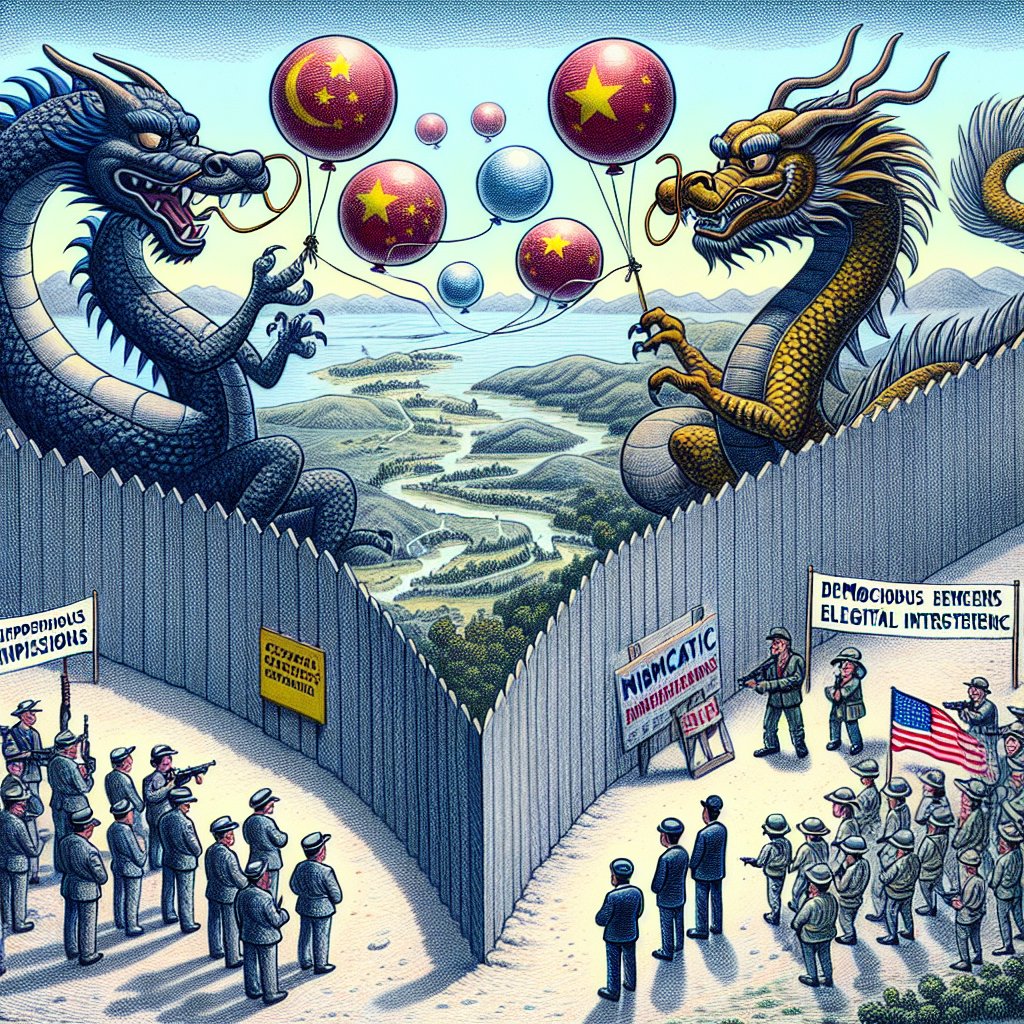Content created by AI
China Denounces Taiwan’s Accusations of Election Interference Amidst Tense Relations
The Chinese defense ministry has publicly dismissed claims made by Taiwan regarding Beijing's alleged interference in the island’s presidential election. The assertions made by the defense ministry spokesperson Wu Qian on Thursday aim to undermine what Beijing regards as fear-mongering by the Democratic Progressive Party (DPP) of Taiwan.
Wu Qian specifically targeted the DPP, the ruling party in Taiwan, accusing its members of leveraging the theme of Chinese interference as a political tool. “The DPP authorities have been hyping up that China's mainland is interfering in its elections,” Wu said during a press conference, calling out the efforts of the Taiwanese authorities to "stoke confrontation and manipulate the election."
The discourse surrounding the election has been heavily focused on the candidates' approaches to the complex relationship with China. Taiwan has maintained that its electoral process is being undermined by Chinese endeavours, an allegation that has acquired greater urgency against the tension-filled backdrop of Chinese pressure on Taiwan, which it claims as part of its territory.
The detection of Chinese balloons traversing the median line, which serves as an unofficial barrier between the two sides of the Taiwan Strait, heightened suspicions of espionage and interference in December, further escalating tensions. When pressed about the incursions of these balloons, Wu dismissed the concerns as baseless and accused the DPP of recycling old strategies to deceive the Taiwanese public.
Taiwan’s DPP presidential candidate, Lai Ching-te, has staunchly maintained the position of vigilance against Chinese interference. In a recent televised policy discussion, Lai reiterated the potential hazards of Beijing’s intervention in the Taiwanese democratic process, citing attempts to corrupt the electoral system. Lai’s rhetoric has been sharply contrasted by KMT candidate Hou Yu-ih, who has called for a more harmonious relationship with China and framed the election as a pivotal decision between hostility and harmonious coexistence.
The controversy comes at a time when cross-strait relations have taken a central role in the global geopolitical theater. The upcoming election in Taiwan is closely watched not only by the Taiwanese public but also by international observers who are keen to understand the direction of Taiwan's future relationship with China, a nation that has shown increasing assertiveness in its claims over the territory.
The DPP has long been skeptical of China's intentions and has been vocal about the dangers posed by the Chinese Communist Party's influence. Their stance is indicative of a broader unease within Taiwan over China's growing boldness in international matters, particularly in relation to its sovereign status and democratic values.
As the election nears, the global community can expect continued verbal skirmishes alongside close analysis of Taiwan's internal political dynamics. The implications of the Taiwanese presidential election will resonate beyond the shores of the small island, potentially influencing the delicate balance of power in East Asia and affecting interactions with major global powers interested in the stability and security of the region.










